-Музыка
- That is a big pee pee. OR: `Have you ever seen the rain?`
- Слушали: 34 Комментарии: 0
- MATCHISH, OR LADIES DO NOT GO THAT FAR
- Слушали: 29 Комментарии: 0
- THE SEVEN STRING GUITAR OR THERE WILL BE DANCING TONIGHT
- Слушали: 68 Комментарии: 0
- CAT`N`COOK, AN OLD RUSSIAN DON RIVER COSSACK LULLABY
- Слушали: 43 Комментарии: 0
-Поиск по дневнику
-Подписка по e-mail
-Статистика
A GREEN KITTY`S LIBRARY - UNA BIBLIOTECA DE UN GATITO VERDE |
TO JAPAN WITHOUT A VISA - A JAPÓN SIN UNA VISA
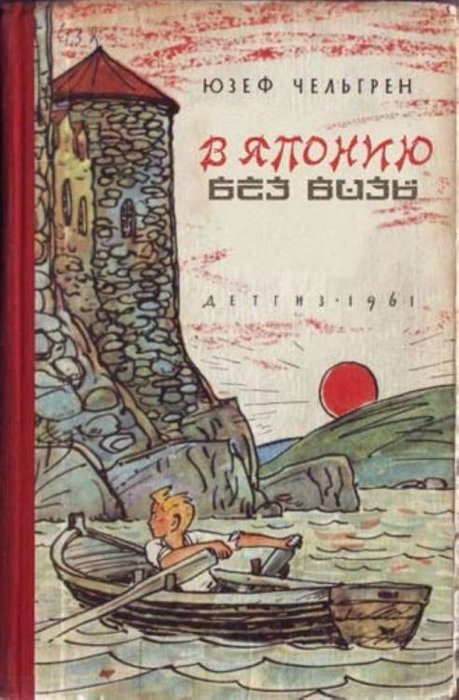
Józef Czelgren. Manual for the Russian Teenagers from the series `Do it yourself!`: `How to get to Japan without a Visa`. Moscow, The Kid-Print Publishing House, 1961
MONGOLIA
By Feodor Swarowski/Por Feodor Swarowski
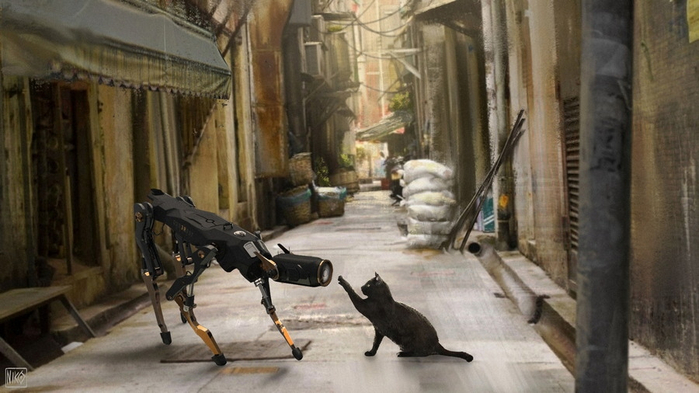
1.
japanese combat robots
have attacked Beijing.
all the Chinese are dead.
but due to a system failure
they spare no efforts
to ignore a kid.
robots japoneses de combate
han atacado Pekín.
todos los chinos están muertos.
pero debido a una falla del sistema
no escatiman esfuerzos
para ignorar a una niña.
2.
the grass is pushing up asphalt
on deserted Tian`anmen square.
flowers are as far as the eye can see.
electric elephants are roaming about streets.
their riders, the robots,
are all ill.
no more energy.
they need acid to be charged.
no more acid! why?
it has passed
the fifth year
since the start of the genocide.
la hierba está empujando hacia arriba el asfalto
en la plaza desierta de Tian`anmen.
las flores están tan lejos como el ojo puede ver.
elefantes eléctricos están deambulando por las calles.
sus jinetes, los robots,
están todos enfermos.
pas de más energía
necesitan ácido para ser cargado.
¡Pas plus más ácido! ¿Por qué?
ha pasado
el quinto año
desde el comienzo del genocidio.

3.
japanese businessman`s daughter Aiko
lives on the top of a hill
in the ruins of an old house.
outside is a view of the city.
a prison is at the foot of the hill.
she waits for none.
she’s 12, she’s alone every inch.
her only companions are
her torn teddy-bear, dog stuffed with rice.
other plastic fauna without paws and eyes.
food concentrates to expire soon.
there’s only a dozen of boxes
of the spoiled wine.
hija de un empresario japonés Aiko
vive en la cima de una colina
en las ruinas de una casa vieja.
afuera hay una vista de la ciudad.
una prisión está al pie de la colina.
ella no espera a ninguno.
ella tiene 12 años, está sola cada centímetro.
sus únicos compañeros son
su oso de peluche roto, perro relleno de arroz.
otra fauna plástica sin patas y ojos.
los concentrados de alimentos para caducar pronto.
solo hay una docena de cajas
del vino agrio.

4.
in search of a rat for dinner
once she entered the prison`s vault.
darkness and fear!
suddenly she heard someone called
en busca de una rata para la cena
una vez que ella vino debajo los arcos de la prisión.
oscuridad y miedo!
de repente oyó a alguien llamado
`who`s there?`
`girl, girl!
come here, please, try.
I am so alone
I am ill, so on
the demolished cities are still in my eyes`.
`¿quién está allí?`
`niña, niña!
Ven aquí, por favor, inténtalo.
estoy tan solo
Estoy enfermo,
las ciudades demolidas todavía están en mis ojos`.

5.
a boiler in the old house
concealed a replicant.
a robot who`s a human`s replica
was dying of
a heart attack.
una caldera en la casa vieja
ocultó un replicante.
un robot que es una réplica humana
estaba muriendo de
un infarto.
his cardiac muscle made of special fibre
grew weak.
the servoengine gonna stop inside of him.
su músculo cardíaco hecho de fibra especial
se debilitó
la servoingeniería se detendrá dentro de él.
my name is Ryuichi CI 9
I need acid badly
and solar energy.
gimme acid! some acid!
and free me - lemme outside!
mi nombre es Ryuichi CI 9
Realmente necesito ácido
Y energía solar.
¡Dame ácido! ¡Un poco de ácido!
¡Y líbrame, llévame afuera!

6.
Aiko was startled.
that robot
destroyed people.
but he just lay and watched her,
he looked like no enemy, after all.
not like a killer
or like a rogue.
never mind!
thought Aiko.
I am alone, life is mine.
she returned to the cellar
and brought back a glass of wine.
acid in wine helped the robot.
he could stand up,
come out to the streets
and breathe all right.
Aiko se sobresaltó.
ese robot
destruyó la gente.
pero él se quedó allí y la miró.
parecía que no enemigo, después de todo,
no un asesino
o un sinvergüenza.
¡no importa!
pensó Aiko.
Estoy solo, la vida es mía.
ella regresó a la bodega
y trajo una copa de vino.
el ácido en el vino ayudó al robot.
él podría ponerse de pie,
salir a la calle
y respira normalmente

7.
`but to survive all the way
I need to pump
sulfuric and hydrochloric acid in my empty
vessels. badly!
they say, there`s a state of Mongolia in the North
people use there machines and electric light
there might be acid for robots,
confectionery for children and for the adult.`
`do you remember what are sweets, Aiko?`
`no, I don`t remember that staff.`
`pero para recuperar completamente
es necesario bombear ácidos sulfúrico
y clorhídrico a mis vasos. ¡gravemente!
dicen, hay un estado de Mongolia en el norte
la gente usa allí máquinas y luz eléctrica
podría haber ácido para los robots,
dulces para niños y adultos.
`¿Recuerdas qué son los dulces, Aiko? `
`no, no recuerdo esas cosas!

8.
`why to stay all life in the destroyed house?`
decided Aiko.
`time flies.
life promises no changes.
better to dry out several rats,
take wine,
toys
and go
in search of acid and sweets.
may
the robot
atone for his sins
as a fellow traveller of a human being.
if I am tired
then, by the way, he`ll have to carry me!`
'¿por qué quedarse toda la vida en la casa destruida?'
decidió Aiko.
`el tiempo vuela.
la vida no promete cambios.
mejor secar varias ratas,
tomar vino,
juguetes
y ve
en busca de ácido y dulces
deja que el robot
expiar sus pecados
como un compañero de viaje de un ser humano.
si estoy cansado
entonces, por cierto, ¡él tendrá que llevarme!

9.
Aiko thought that `war was fine` as
the whole country was green.
only woods and villages
and cities.
no people – just silence,
water
and torn wires.
only wind,
only
the grass and wind
in the steppe
at nights Ryichi lit the campfires
and said
`while I`m on duty,
you go to bed.`
Aiko pensó que "la guerra estaba bien" como
todo el país era verde.
solo bosques y aldeas
y ciudades
no hay gente, solo silencio,
agua
y cables rotos.
solo viento,
solamente
la hierba y el viento
en la estepa
en las noches, Ryichi encendió las fogatas
y dijo
`mientras estoy de servicio,
te vas a la cama.

10.
they walked ten months to the west,
two months somewhere to the left,
then to the east.
Ryuichi grew faint under a weight.
wine ran out.
he was totally creased.
they lost their way,
Mongolia was faraway.
Aiko got tired
but no longer Ryuichi could carry again
her
in his arms as a babe.
caminaron diez meses hacia el oeste,
dos meses en algún lugar a la izquierda,
luego hacia el este.
Ryuichi se debilitó bajo un peso.
el vino se acabó.
él estaba totalmente exhausto.
perdieron su camino,
Mongolia era lejana.
Aiko se cansó
pero Ryuichi no podía ya llevarlа
su
en sus brazos como un bebé.

11.
once
after waking up in the morning
Aiko
was about
to cry out `Ah!`
wild horsemen noticed them
in the short,
dry grass,
soon caught them up to grasp.
they poped the robot twice
(all went dark before his eyes)
then took them to the city
to lock them behind bars.
una vez que
después de despertarse en la mañana
Aiko casi gritaba ¡Ah!
jinetes salvajes los han notado
pronto en la hierba seca,
y los atrapó para apoderarse.
golpean al robot dos veces
(todo se oscureció ante sus ojos)
luego los llevó a la ciudad
para encerrarlos entre rejas.

12.
this was `Mongolians`
but not Mongolians indeed
no plants
no factories
no acid
no sweets
no power stations
they walked almost bare
every second one professed cannibalism!
esto fue `mongoles`
pero no los mongoles de hecho
sin plantas
sin fábricas
sin ácido
sin dulces
sin estaciones de energía
caminaban casi desnudos
¡cada segundo profesaba canibalismo!

13.
Aiko and Ryuichi
spent ten days, kidnapped,
underground
in expectation of being eaten up.
`Ryuichi, what will be with us? we`re lost!
those people must be wrong Mongols,
not the people we searched for
you know, I`m not afraid,
but I feel emptiness inside
I wish we could fly away
to find out something quite different. ah?
The replicant answered,
`Aiko, there is more to it than meets the eye!
there must have been reason
I fell down
into the vault from above
and had no acid
to later meet you, just fancy!
Aiko y Ryuichi
pasó diez días, secuestrado,
subterráneo
en espera de ser comido.
`Ryuichi, ¿qué pasará con nosotros? estamos perdidos!
esas personas deben no real estar mongoles,
no las personas que buscamos
ya sabes, no tengo miedo,
pero siento vacío dentro
Ojalá pudiéramos irnos volando
para descubrir algo bastante diferente, ah?
El replicante respondió:
`¡Aiko, no es un accidente!
debe haber habido razón
Me caí
en debajo los arcos desde arriba
y no tenía ácido
para luego conocerte, ¡Imagine juste!
true Mongolia must be
placed somewhere else.
Mongolia is the wind and fields
we walked across not once.
and empty houses, you see?
the buildings in bushes
(their floors covered with dust).
and dry flowers, and their seeds!
la verdadera Mongolia debe ser
colocado en otro lugar.
Mongolia es el viento y los campos
donde cruzamos no una vez.
y casas vacías, ¿entiendes?
los edificios en arbustos
(sus pisos cubiertos de polvo).
y flores secas y sus semillas!
Mongolia`s whenever you walk
and see the distant hills
with houses on their tops.
and banners in every yard.
cherries and peaches on the slopes.
May.
summer begins.
Mongolia es cada vez que caminas
y ver las colinas distantes
con casas en sus cimas.
y banderas en cada patio.
cerezas y melocotones en las laderas.
Mayo.
el verano comienza.
walking across the land
the Japanese girl and her electronic friend
see the hares
or maybe foxes
not hares
scattering from under their feet.
caminando por la tierra
la chica japonesa y su amiga electrónica
ver las liebres
o tal vez zorros
en lugar de liebres
corriendo de debajo de sus pies.
you know, I like
to talk about it.
tu sabes, me gusta
hablar de eso
the matter must have been the robot was lone
but he was not aware of that thing.
and you also was lone.
and then from above
you just brought me some wine.
El problema tenía que ser que el robot estaba solo
Pero él no estaba enterado de eso.
Y tú también estabas solo.
Y luego desde arriba
me acabas de traer un poco de vino

14.
and the Mongols are already sharpening knives
prisoners do not have long to live
y los mongoles ya están afilando cuchillos
los prisioneros no tienen mucho tiempo para vivir

15.
`but
nothing bad happens to us`,
Ryuichi says
`yes, darkness reigns everywhere
due to it every innocent can be puhished unjustly.
everyone can simply disappear
though the war
was over, as-a-matter-of-factly!
`pero
nada malo nos sucede`,
Ryuichi dice
`sí, reina la oscuridad en todas partes
debido a esto, cada inocente puede ser proferido injustamente.
todos pueden simplemente desaparecer
aunque la guerra
había terminado, como una cuestión de hecho!
but I heard radiowaves.
and I called them back in time.
I didn`t want to tell you before the proper time.
soon we`ll meet here
a special Tibetan squad.
its commander informs us he`s glad to be fast
to help
us.
but they need the night
to come
to use their laser
to transform the walls into smoke.
and change night into day.
pero escuché ondas de radio.
y los llamé a tiempo.
No quería decírtelo antes del momento apropiado.
pronto nos encontraremos aquí
un escuadrón tibetano especial.
su comandante nos informa que está contento de ser rápido
ayudar
nos.
pero necesitan tener una noche
para usar su láser
y transformar las paredes en humo.
y cambia la noche en día.
when you wake up.
I`ll be a handsome young
man,
you`ll be adult,
we`ll marry.
I`ll go to work.
on Sundays,
the way it should be,
I`ll sit with my rod on a river bank.
I`ll have a sparkling bucket in my hand.
I`ll always return home
with my catch.
Cuando te despiertas
Seré un joven
apuesto,
Serás adulto,
Nos casaremos.
Iré a trabajar..
Los domingos,
Como debería ser,
Me sentaré con mi caña de pescar en la orilla del río.
Tendré un balde chispeante en mi mano.
Siempre regresaré a casa
Con mi captura de peces.

16.
`and now
if you`re to be bored
we can have a good look at clouds
or just sing aloud something
or simply sit down doing nothing
and expect
when the battle begins
or expect a sign.`
`what sign?`
`y ahora
si estás aburrido
podemos echar un buen vistazo a las nubes
o simplemente cantar en voz alta algo
o simplemente siéntate sin hacer nada
y esperar
cuando comience la batalla
o espera una señal.
`¿Qué señal?`
`a thunderstorm or like.
when you close your eyes
the first rumbles
will make all you like alive
(`may all that you love
meet you after our last mortal kombat`,
whispered to himself the robot)
me,
broken dynasaur,
teddy-bear
and
rice
dog`.
Aug. 16, 2011
(Trans. by Andrew Alexandre Owie)
`una tormenta eléctrica o algo así.
cuando cierras los ojos
los primeros estruendos
darán vida a todo lo que es querido para ti
(`¡Que todos los que amas, te encuentren
después de nuestro último kombate mortal!`,
susurró a sí mismo el robot)
yo,
dinasaur roto,
oso de peluche
y
perro
relleno de arroz`.
16 de agosto de 2011
(Traducido por Andrew Alejandro Owie)

JE T`AIME, MON MINOU, OU UNE COLLECTION DE TANKAS ÉROTIQUES
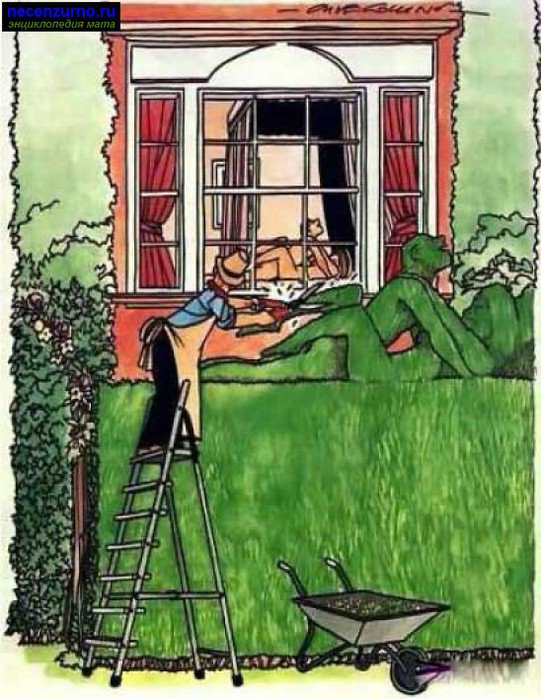
あなたは叫んだ
私の杖に触れた後
ディープの
沈黙です
ノイズがない
You uttered a shriek
After touching my cane
Deep Silence
No noise
Pronunciaste un grito
Después de tocar mi bastón
El profundo
Silencio Sin ruido

誰があなたの名前をくれたのですか,
島町からの赤ちゃん?
なぜあなたの唇は巧みに
サンゴを撫でる?
至福の天国!
Who gave you your name,
Baby from Shimacho quarter?
Why do your lips so deftly
Stroke the coral?
The seventh heaven of bliss!
¿Quién te dio tu nombre,
Bebé del barrio de Shimacho?
¿Por qué tus labios tan hábilmente
Acarician el coral? ¡
El paraíso de la felicidad!

昨日の正午我々は
至福の杯を
底に排水した
冬の太陽は藤山の上は
とても寂しい
Yesterday at noon
We drained the cup of bliss.
Winter Sun.
It`s so lonesome
Over Fujiyama.
Ayer a mediodía
Bebimos la copa de la bienaventuranza.
Invierno Sol.
Es tan solitario
Sobre Fujiyama.

インとアウト
同じ門を通って
あなたはかなり最近人形を
演奏しました
今あなた別の大人の
ゲームを演奏ます
Ins and outs
Through the same gates.
You`ve played dolls quite recently
Now you play the other
Games with the adult.
Ins y outs
Por las mismas puertas.
Has jugado muñecas muy recientemente.
Ahora juegas los otros juegos
Con los adultos.

あなたはオイルトレーダーを選んだ
私ではない
どれだけの時間?
どこでお金を得ることができますか?
それが問題です
You have preferred me
To an oil trader?
Well, then for how long?
Where to get money?
That`s the problem.
¿Me has preferido
A un comerciante de petróleo?
¿Bueno, por cuánto tiempo?
¿Dónde conseguir dinero?
Ese es el problema.

あなたは笑顔で着物を開いた
あなたの頭を回してください!
なぜ私にこれをするように頼んだのですか?
素晴らしい気持ち
小さなおっぱい
You`ve undone
Your kimono with a smile.
Why have you asked me to turn aside?
Great feelings.
Small boobs.
Has abierto
Su kimono con una sonrisa.
¿Por qué querías que me diera la vuelta?
Grandes sentimientos.
Tetas pequeñas.

誰が致命的な戦争を起こしたのですか?
誰が皇帝の怒りを喚起した?
私は女の子の膝にキスしています。
彼女のシルクスリッパ
露で暗かった。
Who unleashed the fatal war?
Who aroused Emperor`s ire?
I`m kissing the girl`s knees.
Her silk slippers
Have been dark with dew.
¿Quién desencadenó la guerra fatal?
¿Quién despertó la ira del Emperador?
Estoy besando las rodillas de la chica.
Sus zapatillas de seda
Han estado oscuras con el rocío.

ウェットバラ
再咲いた
霧の中で
至福は私の舌の先端に
残っていた
Wet rose
Blossomed again
In fog.
Bliss lingered
On the tip of my tongue.
Rosa húmeda
Volvió a florecer
En la niebla.
La felicidad permaneció más larga
En la punta de la lengua.
(Trans. by Andrew Alexandre Owie/Traducido por Andrew Alejandro Owie)

POETRY UNILLUSTRATED - POESÍA NO ILUSTRADA
You`ve read the erotic tankas by Ruboku Sho! ¡Ustedes han leído los tankas eróticos por Ruboku Sho!
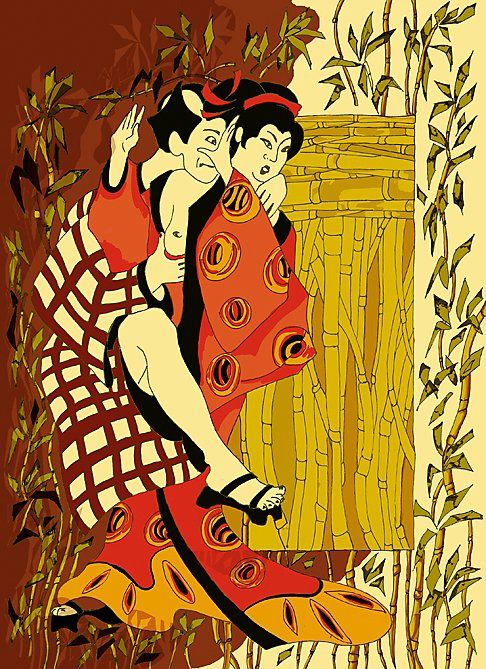
There remained only 99 tankas of Ruboku Sho (るぼく しょ (路波格 说)). He was a founder of the Japanese erotic poetry. Sólo quedaban 99 tanques de Ruboku Sho. Fue el fundador de la poesía erótica japonesa (るぼく しょでエロティックな短歌).
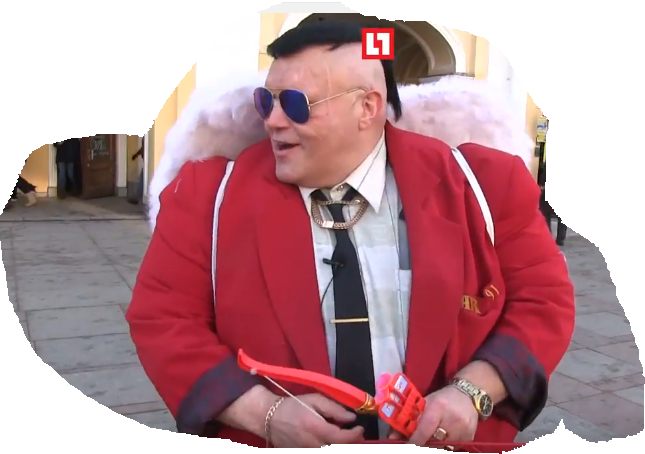
Kawasaki Inu
As a poet he was occasionally discovered in the Paris bookstalls by a Japanese billionaire Kawasaki Inu (川崎•犬) in the 80s of the 20 c. Como poeta, fue ocasionalmente descubierto en las librerías de París por un billonario japonés Kawasaki Inu en los años 80 del siglo XX.
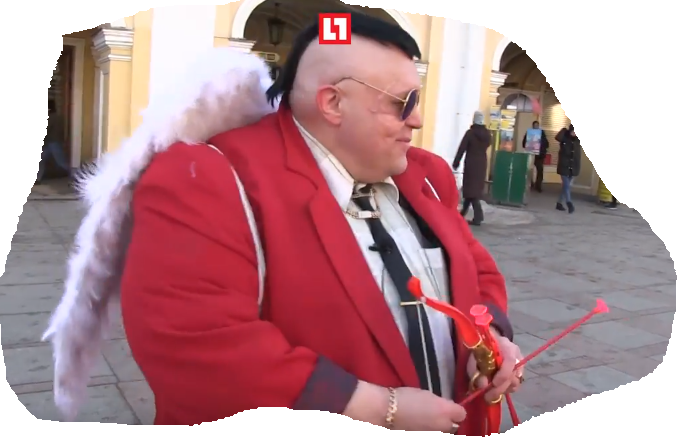
Kawasaki Inu
In 1985 Mr. Kawasaki died in a brothel in Lisbon in asuspicious contingency. En 1985, el Sr. Kawasaki murió en un burdel de Lisboa en una contingencia sospechosa.

Peter Ingres
The first translations were made by a Canadian philologist Peter Ingres who had got the photo replicas of the manuscripts belonging to the widow Kawasaki Yoko (川崎•洋子).
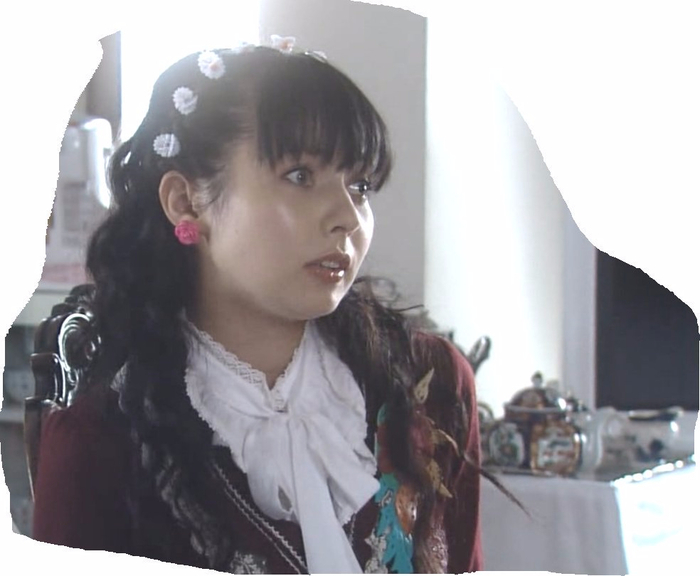
Kawasaki Yoko
Las primeras traducciones fueron hechas por un filólogo canadiense Peter Ingres que había obtenido réplicas de los manuscritos pertenecientes a la viuda Yoko Kawasaki.

緑の子猫の告白
親愛なる友人!やつかつガール! みんな! あなたが推測しておかなければならないように、るぼく しょ (少)(Ruboku Sho)の短い歌は文学の偽装です。 残念ながら、それは私のものではありません!Mystification は多くの作家によって使用された文学的な装置である。 作家だけでなくスラヴィストでもあったプロスパー・メリメは、西スラヴの歌を書いた。 彼は読者だけでなく多くの傑出した詩人を欺いた。ジェームスマクファーソンは、偽のアイルランドの叙事詩のOssianサイクルを書きました。 Ruboku Shoは同じ行にあります。


Mystification
Green kitty’s confession Confesión del gatito verde
Dear friends! Dudes and dudines! As you must have already guessed, tankas by Ruboku Sho are just a literary mystification. Unfortunately, not mine! Mystification is a literary device which was being used by many writers.

Prosper Mérimée
Prosper Mérimée who was not only writer but also a Slavist wrote The Songs of the Western Slavs. He deceived many outstanding poets, not only readers. James Macpherson wrote the Ossian cycle of the fake Irish epic poems. Ruboku Sho is in the same line.

James Macpherson
¡Queridos amigos! Tíos y tías! Colegas y mujercitas! Como ya has adivinado, tankas por Ruboku Sho son sólo mistificación literaria. Desafortunadamente, no mio! La mistificación es un `dispositivo` literario que fue utilizado por muchos escritores. Prosper Mérimée que no sólo fue escritor sino también eslavista escribió Las canciones de los eslavos occidentales. Engañó a muchos poetas destacados, no sólo a los lectores. James Macpherson escribió el ciclo ossiano de los poemas épicos irlandeses falsos. Ruboku Sho está en la misma línea.

Whom have you called a dog? !¿A quién has llamado un perro?
One day in 1990 Viktor Pelenyagre, a member of the literary group of the `Order of Courtly Mannerists`, a successful author of several lyrics for the then most popular pop songs and an outstanding Russian poet from Moldavia pretended to be an academic translator from the Old Japanese language and offered a quasi-translations made by his friend Oleg Borushko, another member of the `Order of Courtly Mannerists` to one of the Moscow Publishing Houses.
Un vez en 1990, Viktor Pelenyagre, miembro del grupo literario de la Orden de los Manieristas Cortéses, en ese tiempo exitoso autor de varias lyrics para las canciones más populares y un destacado poeta ruso de Moldavia, pretendió ser un traductor académico del Viejo Japonés y ofreció unas cuasi-traducciones hechas por su amigo Oleg Borushko, otro miembro de la Orden de los Manieristas Cortéses, a una de las editoriales de Moscú.

Viktor Pelenyagre
Ruboku Sho is an anagram of Borushko family name. They both wrote quasi-academic comments, preface, tankas. Peter Ingres, the `translator` of tankas was an anagram of the name of Viktor Pelenyagre [pee-lee-nya-gre]. Pelenyagre wrote also many poems for the following books by Ruboku Sho. All those books have been bestsellers in Russia.
Ruboku Sho es un anagrama del apellido de Borushko. Ambos escribieron comentarios cuasiadémicos, prefacio, tankas. Peter Ingres, el "traductor" de tankas era un anagrama del nombre de Viktor Pelenyagre [pee-lee-nya-gre]. Pelenyagre también escribió muchos poemas para los siguientes libros de Ruboku Sho. Todos esos libros han sido best-sellers en Rusia.
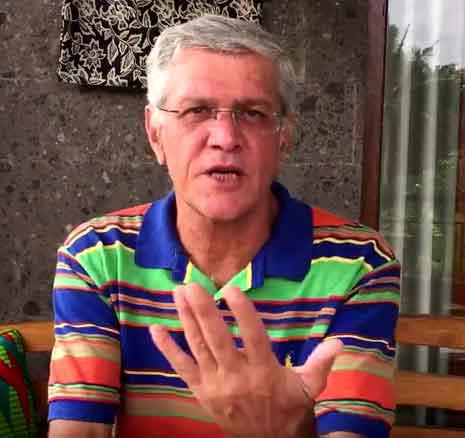
Oleg Borushko
Oleg Borushko was one of the Grand Masters of the literary `Order of Courtly Mannerists` of Russia in the 80-90s. Now he lives in London, and is the chairman of the jury of the annual Russian poetry contest `Pushkin in Britain`.
Oleg Borushko fue uno de los Grandes Maestros de la Orden de los Manieristas Cortéses de Rusia en los años 80-90. Ahora vive en Londres y es el presidente del jurado del concurso anual de poesía rusa "Pushkin en Gran Bretaña".
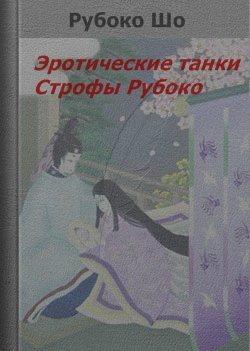
After reading the book`s preface readership was quite sure that it had been a genuine Japanese masterpiece, the more so because the reviewer stated that` in a few lines Ruboku Sho managed to express more shades of meaning than some authors of the thick novels did`. Everybody in Russia, including experts, refused to believe that it was a fake text of an author who never existed in the history of the Japanese literature! Moreover there were issued sequels of the Ruboku Sho. `Abode of one hundred pleasures`. Moscow, Vagrius Publishing House, 2001 and the A Crown for Ruboko and Miscellaneous Works (Poems), 2000, Moscow. Golos Publishing House), etc.
Después de leer los prefacios del libro, los lectores estaban bastante seguros de que había sido una auténtica obra maestra japonesa, más aún porque el crítico afirmó que "en pocas líneas, Ruboku Sho logró expresar más matices de significado que algunos autores de las novelas gruesas `. Todos en Rusia, incluidos los expertos, se negaron a creer que era un texto falso de un autor que nunca existió en la historia de la literatura japonesa. Además, se publicaron secuelas del Ruboku Sho. `Morada de cien placeres`. Moscow, Editorial Vagrius, 2001 y `Una corona para Ruboko y Obras misceláneas (Poemas)`, 2000, Moscú. Golos Editorial), etc.

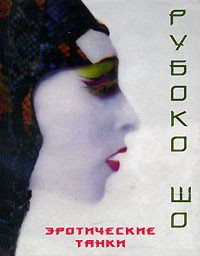

Ruboku Sho followed the old Russan literary tradition. There were `Japanese` poems written by Konstantin Balmont, Andrei Beliy and Valery Bryusov. An outstanding Russian avant-garde poet Velimir Khlebnikov also composed a cycle of 13 tankas. (Sometimes, it seems Japan in Russia is loved stronger than in Japan itself. It’s a joke, of course, but every single joke contains just a bit of a joke as the Russian are used to jocularly say).
Ruboku Sho siguió la antigua tradición literaria rusa. Había poemas "japoneses" escritos por Konstantin Balmont, Andrei Bely y Valery Bryusov. Un poeta notable de la vanguardia rusa Velimir Khlebnikov también compuso un ciclo de 13 tankas. (A veces, parece que Japón es amado en Rusia más fuerte que en el propio Japón. Es una broma, por supuesto, pero cada broma solo tiene un poco de broma, como jocosamente suelen decir los rusos).

Velemir Khlebnikov
It had been a very successful marketing move, after all. The Publishing Houses made big profit. The authors were not down too. The circulation of the Ruboku Sho`s tankas made up 300 000 copies. Critics attacked the poets after their mystification had been revealed, blamed them for `clumsy` style of their tankas, they attacked them rather seriously in spite of the fact that the poets of the Order of Courtly Mannerists were never serious, but always ironical, humorous and erotic. Ruboku Sho`s tankas have still been very popular with the Russian readers as well as the had been before their unmasking. Now they became a part of the Russian classical literature. Después de todo, fue una movida de marketing muy exitosa. Las casas editoriales obtuvieron grandes ganancias. Los autores tampoco bajaron. La circulación de los tanques de Ruboku Sho compuso 300,000 copias.Los críticos atacaron a los poetas después de revelar su mistificación, los culpó por el estilo "torpe" de sus tankas, los atacaron bastante en serio a pesar de que los poetas de la Orden de los Manieristas Cortéses nunca fueron serios, sino siempre irónicos, humorístico y erótico.Los tankas de Ruboku siguen siendo muy populares entre los lectores rusos, no menos de lo que fueron antes de ser desenmascarados. Ahora se convirtieron en parte de la literatura clásica rusa.

A quasi japanese ukiyo-e by Xenia Tchumakova (an illustration to Ruboku Sho). The picture drawn in the red and yellow palette unusual for the genuine genre of the ukiyo-e pictures. Una ukiyo-e cuasi japonesa por Xenia Chumakova (ilustración à Ruboku Sho). La imagen dibujada en la paleta roja y amarilla inusual para el género genuine de la ukiyo-e.
Japanese translator 緑 の に ゃ ん`s notes : As to me, I had to translate from Russian into Japanese. Not knowing old Japanese I had to use the modern language and its syllabaries, not only hiragana, but also katakana. They were absent in Old Japan, only Chinese characters were used. So the Chinese translations may seem to be closer to the `original`, if not to take into account my usage of the modern grammar. In Old China they also used special language `wenyan`. Besides I transformed the not very Japanese sounding name `Kino Kawabaki` into Inu Kawasaki (lit. Chien Kawasaki), and having probably remembered Serge Gainsbourg (`Je t’aime… moi non plus`, `Qui est in, qui est out `) and A Clockwork Orange (Alex: No time for the old in-n-out, love…), I inserted some English words. Humour! Tee-hee!
Ivan The Terrible: What do you mean, a dog?
緑のにゃんこ(The Green Kitty): Calm down, Ivan Vasiliyevich, I`m just kidding!
Iván el Terrible: ¿Qué quieres decir con un perro?
緑のにゃんこ(El Gatito Verde): Cálmate, Ivan Vasilievich, esto es solo una broma! https://youtu.be/sxqf4uyelUE
Comentarios del traductor japonés 緑のにゃん: En cuanto a mí, tuve que traducir del ruso al japonés. Sin saber japonés antiguo, tuve que usar el lenguaje moderno y sus silabarios, no solo hiragana, sino también katakana. Estaban ausentes en el Japón Antiguo, solo se usaban caracteres chinos. Entonces, las traducciones chinas parecen estar más cerca del 'original', si no para tener en cuenta mi uso de la gramática moderna. En la Antigua China también usaban el lenguaje especial `wenyan`. Además, transformé el nombre no muy japonés `Kino Kawabaki` en Inu Kawasaki (literalmente, Perro Kawasaki) y probablemente recordando a Serge Gainsbourg (` Je t'aime ... moi non plus`, `Qui est in, qui est out`) y Una Naranja Mecánica (Alex: No time for the old in-n-out, love…) inserté algunas palabras en inglés. ¡Humor! ¡Jajaja!
A CLOCKWORK ORANGE Alex: No time for the old in-n-out, love, I've just come to read the meter. https://youtu.be/89GSUhzT3Ow
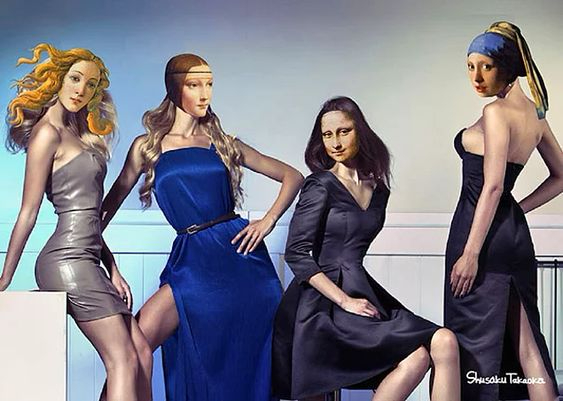
Tous vedettes! All the celebrities! ¡Todas las celebridades!

Rule, Britannia! ¡Regla, Britannia!

Józef Czelgren. Manual for the Russian Teenagers from the series `Do it yourself!`: `How to get to Japan without a Visa`. Moscow, The Kid-Print Publishing House, 1961
MONGOLIA
By Feodor Swarowski/Por Feodor Swarowski

1.
japanese combat robots
have attacked Beijing.
all the Chinese are dead.
but due to a system failure
they spare no efforts
to ignore a kid.
robots japoneses de combate
han atacado Pekín.
todos los chinos están muertos.
pero debido a una falla del sistema
no escatiman esfuerzos
para ignorar a una niña.
2.
the grass is pushing up asphalt
on deserted Tian`anmen square.
flowers are as far as the eye can see.
electric elephants are roaming about streets.
their riders, the robots,
are all ill.
no more energy.
they need acid to be charged.
no more acid! why?
it has passed
the fifth year
since the start of the genocide.
la hierba está empujando hacia arriba el asfalto
en la plaza desierta de Tian`anmen.
las flores están tan lejos como el ojo puede ver.
elefantes eléctricos están deambulando por las calles.
sus jinetes, los robots,
están todos enfermos.
pas de más energía
necesitan ácido para ser cargado.
¡Pas plus más ácido! ¿Por qué?
ha pasado
el quinto año
desde el comienzo del genocidio.

3.
japanese businessman`s daughter Aiko
lives on the top of a hill
in the ruins of an old house.
outside is a view of the city.
a prison is at the foot of the hill.
she waits for none.
she’s 12, she’s alone every inch.
her only companions are
her torn teddy-bear, dog stuffed with rice.
other plastic fauna without paws and eyes.
food concentrates to expire soon.
there’s only a dozen of boxes
of the spoiled wine.
hija de un empresario japonés Aiko
vive en la cima de una colina
en las ruinas de una casa vieja.
afuera hay una vista de la ciudad.
una prisión está al pie de la colina.
ella no espera a ninguno.
ella tiene 12 años, está sola cada centímetro.
sus únicos compañeros son
su oso de peluche roto, perro relleno de arroz.
otra fauna plástica sin patas y ojos.
los concentrados de alimentos para caducar pronto.
solo hay una docena de cajas
del vino agrio.

4.
in search of a rat for dinner
once she entered the prison`s vault.
darkness and fear!
suddenly she heard someone called
en busca de una rata para la cena
una vez que ella vino debajo los arcos de la prisión.
oscuridad y miedo!
de repente oyó a alguien llamado
`who`s there?`
`girl, girl!
come here, please, try.
I am so alone
I am ill, so on
the demolished cities are still in my eyes`.
`¿quién está allí?`
`niña, niña!
Ven aquí, por favor, inténtalo.
estoy tan solo
Estoy enfermo,
las ciudades demolidas todavía están en mis ojos`.

5.
a boiler in the old house
concealed a replicant.
a robot who`s a human`s replica
was dying of
a heart attack.
una caldera en la casa vieja
ocultó un replicante.
un robot que es una réplica humana
estaba muriendo de
un infarto.
his cardiac muscle made of special fibre
grew weak.
the servoengine gonna stop inside of him.
su músculo cardíaco hecho de fibra especial
se debilitó
la servoingeniería se detendrá dentro de él.
my name is Ryuichi CI 9
I need acid badly
and solar energy.
gimme acid! some acid!
and free me - lemme outside!
mi nombre es Ryuichi CI 9
Realmente necesito ácido
Y energía solar.
¡Dame ácido! ¡Un poco de ácido!
¡Y líbrame, llévame afuera!

6.
Aiko was startled.
that robot
destroyed people.
but he just lay and watched her,
he looked like no enemy, after all.
not like a killer
or like a rogue.
never mind!
thought Aiko.
I am alone, life is mine.
she returned to the cellar
and brought back a glass of wine.
acid in wine helped the robot.
he could stand up,
come out to the streets
and breathe all right.
Aiko se sobresaltó.
ese robot
destruyó la gente.
pero él se quedó allí y la miró.
parecía que no enemigo, después de todo,
no un asesino
o un sinvergüenza.
¡no importa!
pensó Aiko.
Estoy solo, la vida es mía.
ella regresó a la bodega
y trajo una copa de vino.
el ácido en el vino ayudó al robot.
él podría ponerse de pie,
salir a la calle
y respira normalmente

7.
`but to survive all the way
I need to pump
sulfuric and hydrochloric acid in my empty
vessels. badly!
they say, there`s a state of Mongolia in the North
people use there machines and electric light
there might be acid for robots,
confectionery for children and for the adult.`
`do you remember what are sweets, Aiko?`
`no, I don`t remember that staff.`
`pero para recuperar completamente
es necesario bombear ácidos sulfúrico
y clorhídrico a mis vasos. ¡gravemente!
dicen, hay un estado de Mongolia en el norte
la gente usa allí máquinas y luz eléctrica
podría haber ácido para los robots,
dulces para niños y adultos.
`¿Recuerdas qué son los dulces, Aiko? `
`no, no recuerdo esas cosas!

8.
`why to stay all life in the destroyed house?`
decided Aiko.
`time flies.
life promises no changes.
better to dry out several rats,
take wine,
toys
and go
in search of acid and sweets.
may
the robot
atone for his sins
as a fellow traveller of a human being.
if I am tired
then, by the way, he`ll have to carry me!`
'¿por qué quedarse toda la vida en la casa destruida?'
decidió Aiko.
`el tiempo vuela.
la vida no promete cambios.
mejor secar varias ratas,
tomar vino,
juguetes
y ve
en busca de ácido y dulces
deja que el robot
expiar sus pecados
como un compañero de viaje de un ser humano.
si estoy cansado
entonces, por cierto, ¡él tendrá que llevarme!

9.
Aiko thought that `war was fine` as
the whole country was green.
only woods and villages
and cities.
no people – just silence,
water
and torn wires.
only wind,
only
the grass and wind
in the steppe
at nights Ryichi lit the campfires
and said
`while I`m on duty,
you go to bed.`
Aiko pensó que "la guerra estaba bien" como
todo el país era verde.
solo bosques y aldeas
y ciudades
no hay gente, solo silencio,
agua
y cables rotos.
solo viento,
solamente
la hierba y el viento
en la estepa
en las noches, Ryichi encendió las fogatas
y dijo
`mientras estoy de servicio,
te vas a la cama.

10.
they walked ten months to the west,
two months somewhere to the left,
then to the east.
Ryuichi grew faint under a weight.
wine ran out.
he was totally creased.
they lost their way,
Mongolia was faraway.
Aiko got tired
but no longer Ryuichi could carry again
her
in his arms as a babe.
caminaron diez meses hacia el oeste,
dos meses en algún lugar a la izquierda,
luego hacia el este.
Ryuichi se debilitó bajo un peso.
el vino se acabó.
él estaba totalmente exhausto.
perdieron su camino,
Mongolia era lejana.
Aiko se cansó
pero Ryuichi no podía ya llevarlа
su
en sus brazos como un bebé.

11.
once
after waking up in the morning
Aiko
was about
to cry out `Ah!`
wild horsemen noticed them
in the short,
dry grass,
soon caught them up to grasp.
they poped the robot twice
(all went dark before his eyes)
then took them to the city
to lock them behind bars.
una vez que
después de despertarse en la mañana
Aiko casi gritaba ¡Ah!
jinetes salvajes los han notado
pronto en la hierba seca,
y los atrapó para apoderarse.
golpean al robot dos veces
(todo se oscureció ante sus ojos)
luego los llevó a la ciudad
para encerrarlos entre rejas.

12.
this was `Mongolians`
but not Mongolians indeed
no plants
no factories
no acid
no sweets
no power stations
they walked almost bare
every second one professed cannibalism!
esto fue `mongoles`
pero no los mongoles de hecho
sin plantas
sin fábricas
sin ácido
sin dulces
sin estaciones de energía
caminaban casi desnudos
¡cada segundo profesaba canibalismo!

13.
Aiko and Ryuichi
spent ten days, kidnapped,
underground
in expectation of being eaten up.
`Ryuichi, what will be with us? we`re lost!
those people must be wrong Mongols,
not the people we searched for
you know, I`m not afraid,
but I feel emptiness inside
I wish we could fly away
to find out something quite different. ah?
The replicant answered,
`Aiko, there is more to it than meets the eye!
there must have been reason
I fell down
into the vault from above
and had no acid
to later meet you, just fancy!
Aiko y Ryuichi
pasó diez días, secuestrado,
subterráneo
en espera de ser comido.
`Ryuichi, ¿qué pasará con nosotros? estamos perdidos!
esas personas deben no real estar mongoles,
no las personas que buscamos
ya sabes, no tengo miedo,
pero siento vacío dentro
Ojalá pudiéramos irnos volando
para descubrir algo bastante diferente, ah?
El replicante respondió:
`¡Aiko, no es un accidente!
debe haber habido razón
Me caí
en debajo los arcos desde arriba
y no tenía ácido
para luego conocerte, ¡Imagine juste!
true Mongolia must be
placed somewhere else.
Mongolia is the wind and fields
we walked across not once.
and empty houses, you see?
the buildings in bushes
(their floors covered with dust).
and dry flowers, and their seeds!
la verdadera Mongolia debe ser
colocado en otro lugar.
Mongolia es el viento y los campos
donde cruzamos no una vez.
y casas vacías, ¿entiendes?
los edificios en arbustos
(sus pisos cubiertos de polvo).
y flores secas y sus semillas!
Mongolia`s whenever you walk
and see the distant hills
with houses on their tops.
and banners in every yard.
cherries and peaches on the slopes.
May.
summer begins.
Mongolia es cada vez que caminas
y ver las colinas distantes
con casas en sus cimas.
y banderas en cada patio.
cerezas y melocotones en las laderas.
Mayo.
el verano comienza.
walking across the land
the Japanese girl and her electronic friend
see the hares
or maybe foxes
not hares
scattering from under their feet.
caminando por la tierra
la chica japonesa y su amiga electrónica
ver las liebres
o tal vez zorros
en lugar de liebres
corriendo de debajo de sus pies.
you know, I like
to talk about it.
tu sabes, me gusta
hablar de eso
the matter must have been the robot was lone
but he was not aware of that thing.
and you also was lone.
and then from above
you just brought me some wine.
El problema tenía que ser que el robot estaba solo
Pero él no estaba enterado de eso.
Y tú también estabas solo.
Y luego desde arriba
me acabas de traer un poco de vino

14.
and the Mongols are already sharpening knives
prisoners do not have long to live
y los mongoles ya están afilando cuchillos
los prisioneros no tienen mucho tiempo para vivir

15.
`but
nothing bad happens to us`,
Ryuichi says
`yes, darkness reigns everywhere
due to it every innocent can be puhished unjustly.
everyone can simply disappear
though the war
was over, as-a-matter-of-factly!
`pero
nada malo nos sucede`,
Ryuichi dice
`sí, reina la oscuridad en todas partes
debido a esto, cada inocente puede ser proferido injustamente.
todos pueden simplemente desaparecer
aunque la guerra
había terminado, como una cuestión de hecho!
but I heard radiowaves.
and I called them back in time.
I didn`t want to tell you before the proper time.
soon we`ll meet here
a special Tibetan squad.
its commander informs us he`s glad to be fast
to help
us.
but they need the night
to come
to use their laser
to transform the walls into smoke.
and change night into day.
pero escuché ondas de radio.
y los llamé a tiempo.
No quería decírtelo antes del momento apropiado.
pronto nos encontraremos aquí
un escuadrón tibetano especial.
su comandante nos informa que está contento de ser rápido
ayudar
nos.
pero necesitan tener una noche
para usar su láser
y transformar las paredes en humo.
y cambia la noche en día.
when you wake up.
I`ll be a handsome young
man,
you`ll be adult,
we`ll marry.
I`ll go to work.
on Sundays,
the way it should be,
I`ll sit with my rod on a river bank.
I`ll have a sparkling bucket in my hand.
I`ll always return home
with my catch.
Cuando te despiertas
Seré un joven
apuesto,
Serás adulto,
Nos casaremos.
Iré a trabajar..
Los domingos,
Como debería ser,
Me sentaré con mi caña de pescar en la orilla del río.
Tendré un balde chispeante en mi mano.
Siempre regresaré a casa
Con mi captura de peces.

16.
`and now
if you`re to be bored
we can have a good look at clouds
or just sing aloud something
or simply sit down doing nothing
and expect
when the battle begins
or expect a sign.`
`what sign?`
`y ahora
si estás aburrido
podemos echar un buen vistazo a las nubes
o simplemente cantar en voz alta algo
o simplemente siéntate sin hacer nada
y esperar
cuando comience la batalla
o espera una señal.
`¿Qué señal?`
`a thunderstorm or like.
when you close your eyes
the first rumbles
will make all you like alive
(`may all that you love
meet you after our last mortal kombat`,
whispered to himself the robot)
me,
broken dynasaur,
teddy-bear
and
rice
dog`.
Aug. 16, 2011
(Trans. by Andrew Alexandre Owie)
`una tormenta eléctrica o algo así.
cuando cierras los ojos
los primeros estruendos
darán vida a todo lo que es querido para ti
(`¡Que todos los que amas, te encuentren
después de nuestro último kombate mortal!`,
susurró a sí mismo el robot)
yo,
dinasaur roto,
oso de peluche
y
perro
relleno de arroz`.
16 de agosto de 2011
(Traducido por Andrew Alejandro Owie)

JE T`AIME, MON MINOU, OU UNE COLLECTION DE TANKAS ÉROTIQUES

あなたは叫んだ
私の杖に触れた後
ディープの
沈黙です
ノイズがない
You uttered a shriek
After touching my cane
Deep Silence
No noise
Pronunciaste un grito
Después de tocar mi bastón
El profundo
Silencio Sin ruido

誰があなたの名前をくれたのですか,
島町からの赤ちゃん?
なぜあなたの唇は巧みに
サンゴを撫でる?
至福の天国!
Who gave you your name,
Baby from Shimacho quarter?
Why do your lips so deftly
Stroke the coral?
The seventh heaven of bliss!
¿Quién te dio tu nombre,
Bebé del barrio de Shimacho?
¿Por qué tus labios tan hábilmente
Acarician el coral? ¡
El paraíso de la felicidad!

昨日の正午我々は
至福の杯を
底に排水した
冬の太陽は藤山の上は
とても寂しい
Yesterday at noon
We drained the cup of bliss.
Winter Sun.
It`s so lonesome
Over Fujiyama.
Ayer a mediodía
Bebimos la copa de la bienaventuranza.
Invierno Sol.
Es tan solitario
Sobre Fujiyama.

インとアウト
同じ門を通って
あなたはかなり最近人形を
演奏しました
今あなた別の大人の
ゲームを演奏ます
Ins and outs
Through the same gates.
You`ve played dolls quite recently
Now you play the other
Games with the adult.
Ins y outs
Por las mismas puertas.
Has jugado muñecas muy recientemente.
Ahora juegas los otros juegos
Con los adultos.

あなたはオイルトレーダーを選んだ
私ではない
どれだけの時間?
どこでお金を得ることができますか?
それが問題です
You have preferred me
To an oil trader?
Well, then for how long?
Where to get money?
That`s the problem.
¿Me has preferido
A un comerciante de petróleo?
¿Bueno, por cuánto tiempo?
¿Dónde conseguir dinero?
Ese es el problema.

あなたは笑顔で着物を開いた
あなたの頭を回してください!
なぜ私にこれをするように頼んだのですか?
素晴らしい気持ち
小さなおっぱい
You`ve undone
Your kimono with a smile.
Why have you asked me to turn aside?
Great feelings.
Small boobs.
Has abierto
Su kimono con una sonrisa.
¿Por qué querías que me diera la vuelta?
Grandes sentimientos.
Tetas pequeñas.

誰が致命的な戦争を起こしたのですか?
誰が皇帝の怒りを喚起した?
私は女の子の膝にキスしています。
彼女のシルクスリッパ
露で暗かった。
Who unleashed the fatal war?
Who aroused Emperor`s ire?
I`m kissing the girl`s knees.
Her silk slippers
Have been dark with dew.
¿Quién desencadenó la guerra fatal?
¿Quién despertó la ira del Emperador?
Estoy besando las rodillas de la chica.
Sus zapatillas de seda
Han estado oscuras con el rocío.

ウェットバラ
再咲いた
霧の中で
至福は私の舌の先端に
残っていた
Wet rose
Blossomed again
In fog.
Bliss lingered
On the tip of my tongue.
Rosa húmeda
Volvió a florecer
En la niebla.
La felicidad permaneció más larga
En la punta de la lengua.
(Trans. by Andrew Alexandre Owie/Traducido por Andrew Alejandro Owie)

POETRY UNILLUSTRATED - POESÍA NO ILUSTRADA
You`ve read the erotic tankas by Ruboku Sho! ¡Ustedes han leído los tankas eróticos por Ruboku Sho!

There remained only 99 tankas of Ruboku Sho (るぼく しょ (路波格 说)). He was a founder of the Japanese erotic poetry. Sólo quedaban 99 tanques de Ruboku Sho. Fue el fundador de la poesía erótica japonesa (るぼく しょでエロティックな短歌).

Kawasaki Inu
As a poet he was occasionally discovered in the Paris bookstalls by a Japanese billionaire Kawasaki Inu (川崎•犬) in the 80s of the 20 c. Como poeta, fue ocasionalmente descubierto en las librerías de París por un billonario japonés Kawasaki Inu en los años 80 del siglo XX.

Kawasaki Inu
In 1985 Mr. Kawasaki died in a brothel in Lisbon in asuspicious contingency. En 1985, el Sr. Kawasaki murió en un burdel de Lisboa en una contingencia sospechosa.

Peter Ingres
The first translations were made by a Canadian philologist Peter Ingres who had got the photo replicas of the manuscripts belonging to the widow Kawasaki Yoko (川崎•洋子).

Kawasaki Yoko
Las primeras traducciones fueron hechas por un filólogo canadiense Peter Ingres que había obtenido réplicas de los manuscritos pertenecientes a la viuda Yoko Kawasaki.

緑の子猫の告白
親愛なる友人!やつかつガール! みんな! あなたが推測しておかなければならないように、るぼく しょ (少)(Ruboku Sho)の短い歌は文学の偽装です。 残念ながら、それは私のものではありません!Mystification は多くの作家によって使用された文学的な装置である。 作家だけでなくスラヴィストでもあったプロスパー・メリメは、西スラヴの歌を書いた。 彼は読者だけでなく多くの傑出した詩人を欺いた。ジェームスマクファーソンは、偽のアイルランドの叙事詩のOssianサイクルを書きました。 Ruboku Shoは同じ行にあります。


Mystification
Green kitty’s confession Confesión del gatito verde
Dear friends! Dudes and dudines! As you must have already guessed, tankas by Ruboku Sho are just a literary mystification. Unfortunately, not mine! Mystification is a literary device which was being used by many writers.

Prosper Mérimée
Prosper Mérimée who was not only writer but also a Slavist wrote The Songs of the Western Slavs. He deceived many outstanding poets, not only readers. James Macpherson wrote the Ossian cycle of the fake Irish epic poems. Ruboku Sho is in the same line.

James Macpherson
¡Queridos amigos! Tíos y tías! Colegas y mujercitas! Como ya has adivinado, tankas por Ruboku Sho son sólo mistificación literaria. Desafortunadamente, no mio! La mistificación es un `dispositivo` literario que fue utilizado por muchos escritores. Prosper Mérimée que no sólo fue escritor sino también eslavista escribió Las canciones de los eslavos occidentales. Engañó a muchos poetas destacados, no sólo a los lectores. James Macpherson escribió el ciclo ossiano de los poemas épicos irlandeses falsos. Ruboku Sho está en la misma línea.

Whom have you called a dog? !¿A quién has llamado un perro?
One day in 1990 Viktor Pelenyagre, a member of the literary group of the `Order of Courtly Mannerists`, a successful author of several lyrics for the then most popular pop songs and an outstanding Russian poet from Moldavia pretended to be an academic translator from the Old Japanese language and offered a quasi-translations made by his friend Oleg Borushko, another member of the `Order of Courtly Mannerists` to one of the Moscow Publishing Houses.
Un vez en 1990, Viktor Pelenyagre, miembro del grupo literario de la Orden de los Manieristas Cortéses, en ese tiempo exitoso autor de varias lyrics para las canciones más populares y un destacado poeta ruso de Moldavia, pretendió ser un traductor académico del Viejo Japonés y ofreció unas cuasi-traducciones hechas por su amigo Oleg Borushko, otro miembro de la Orden de los Manieristas Cortéses, a una de las editoriales de Moscú.

Viktor Pelenyagre
Ruboku Sho is an anagram of Borushko family name. They both wrote quasi-academic comments, preface, tankas. Peter Ingres, the `translator` of tankas was an anagram of the name of Viktor Pelenyagre [pee-lee-nya-gre]. Pelenyagre wrote also many poems for the following books by Ruboku Sho. All those books have been bestsellers in Russia.
Ruboku Sho es un anagrama del apellido de Borushko. Ambos escribieron comentarios cuasiadémicos, prefacio, tankas. Peter Ingres, el "traductor" de tankas era un anagrama del nombre de Viktor Pelenyagre [pee-lee-nya-gre]. Pelenyagre también escribió muchos poemas para los siguientes libros de Ruboku Sho. Todos esos libros han sido best-sellers en Rusia.

Oleg Borushko
Oleg Borushko was one of the Grand Masters of the literary `Order of Courtly Mannerists` of Russia in the 80-90s. Now he lives in London, and is the chairman of the jury of the annual Russian poetry contest `Pushkin in Britain`.
Oleg Borushko fue uno de los Grandes Maestros de la Orden de los Manieristas Cortéses de Rusia en los años 80-90. Ahora vive en Londres y es el presidente del jurado del concurso anual de poesía rusa "Pushkin en Gran Bretaña".

After reading the book`s preface readership was quite sure that it had been a genuine Japanese masterpiece, the more so because the reviewer stated that` in a few lines Ruboku Sho managed to express more shades of meaning than some authors of the thick novels did`. Everybody in Russia, including experts, refused to believe that it was a fake text of an author who never existed in the history of the Japanese literature! Moreover there were issued sequels of the Ruboku Sho. `Abode of one hundred pleasures`. Moscow, Vagrius Publishing House, 2001 and the A Crown for Ruboko and Miscellaneous Works (Poems), 2000, Moscow. Golos Publishing House), etc.
Después de leer los prefacios del libro, los lectores estaban bastante seguros de que había sido una auténtica obra maestra japonesa, más aún porque el crítico afirmó que "en pocas líneas, Ruboku Sho logró expresar más matices de significado que algunos autores de las novelas gruesas `. Todos en Rusia, incluidos los expertos, se negaron a creer que era un texto falso de un autor que nunca existió en la historia de la literatura japonesa. Además, se publicaron secuelas del Ruboku Sho. `Morada de cien placeres`. Moscow, Editorial Vagrius, 2001 y `Una corona para Ruboko y Obras misceláneas (Poemas)`, 2000, Moscú. Golos Editorial), etc.



Ruboku Sho followed the old Russan literary tradition. There were `Japanese` poems written by Konstantin Balmont, Andrei Beliy and Valery Bryusov. An outstanding Russian avant-garde poet Velimir Khlebnikov also composed a cycle of 13 tankas. (Sometimes, it seems Japan in Russia is loved stronger than in Japan itself. It’s a joke, of course, but every single joke contains just a bit of a joke as the Russian are used to jocularly say).
Ruboku Sho siguió la antigua tradición literaria rusa. Había poemas "japoneses" escritos por Konstantin Balmont, Andrei Bely y Valery Bryusov. Un poeta notable de la vanguardia rusa Velimir Khlebnikov también compuso un ciclo de 13 tankas. (A veces, parece que Japón es amado en Rusia más fuerte que en el propio Japón. Es una broma, por supuesto, pero cada broma solo tiene un poco de broma, como jocosamente suelen decir los rusos).

Velemir Khlebnikov
It had been a very successful marketing move, after all. The Publishing Houses made big profit. The authors were not down too. The circulation of the Ruboku Sho`s tankas made up 300 000 copies. Critics attacked the poets after their mystification had been revealed, blamed them for `clumsy` style of their tankas, they attacked them rather seriously in spite of the fact that the poets of the Order of Courtly Mannerists were never serious, but always ironical, humorous and erotic. Ruboku Sho`s tankas have still been very popular with the Russian readers as well as the had been before their unmasking. Now they became a part of the Russian classical literature. Después de todo, fue una movida de marketing muy exitosa. Las casas editoriales obtuvieron grandes ganancias. Los autores tampoco bajaron. La circulación de los tanques de Ruboku Sho compuso 300,000 copias.Los críticos atacaron a los poetas después de revelar su mistificación, los culpó por el estilo "torpe" de sus tankas, los atacaron bastante en serio a pesar de que los poetas de la Orden de los Manieristas Cortéses nunca fueron serios, sino siempre irónicos, humorístico y erótico.Los tankas de Ruboku siguen siendo muy populares entre los lectores rusos, no menos de lo que fueron antes de ser desenmascarados. Ahora se convirtieron en parte de la literatura clásica rusa.

A quasi japanese ukiyo-e by Xenia Tchumakova (an illustration to Ruboku Sho). The picture drawn in the red and yellow palette unusual for the genuine genre of the ukiyo-e pictures. Una ukiyo-e cuasi japonesa por Xenia Chumakova (ilustración à Ruboku Sho). La imagen dibujada en la paleta roja y amarilla inusual para el género genuine de la ukiyo-e.
Japanese translator 緑 の に ゃ ん`s notes : As to me, I had to translate from Russian into Japanese. Not knowing old Japanese I had to use the modern language and its syllabaries, not only hiragana, but also katakana. They were absent in Old Japan, only Chinese characters were used. So the Chinese translations may seem to be closer to the `original`, if not to take into account my usage of the modern grammar. In Old China they also used special language `wenyan`. Besides I transformed the not very Japanese sounding name `Kino Kawabaki` into Inu Kawasaki (lit. Chien Kawasaki), and having probably remembered Serge Gainsbourg (`Je t’aime… moi non plus`, `Qui est in, qui est out `) and A Clockwork Orange (Alex: No time for the old in-n-out, love…), I inserted some English words. Humour! Tee-hee!
Ivan The Terrible: What do you mean, a dog?
緑のにゃんこ(The Green Kitty): Calm down, Ivan Vasiliyevich, I`m just kidding!
Iván el Terrible: ¿Qué quieres decir con un perro?
緑のにゃんこ(El Gatito Verde): Cálmate, Ivan Vasilievich, esto es solo una broma! https://youtu.be/sxqf4uyelUE
Comentarios del traductor japonés 緑のにゃん: En cuanto a mí, tuve que traducir del ruso al japonés. Sin saber japonés antiguo, tuve que usar el lenguaje moderno y sus silabarios, no solo hiragana, sino también katakana. Estaban ausentes en el Japón Antiguo, solo se usaban caracteres chinos. Entonces, las traducciones chinas parecen estar más cerca del 'original', si no para tener en cuenta mi uso de la gramática moderna. En la Antigua China también usaban el lenguaje especial `wenyan`. Además, transformé el nombre no muy japonés `Kino Kawabaki` en Inu Kawasaki (literalmente, Perro Kawasaki) y probablemente recordando a Serge Gainsbourg (` Je t'aime ... moi non plus`, `Qui est in, qui est out`) y Una Naranja Mecánica (Alex: No time for the old in-n-out, love…) inserté algunas palabras en inglés. ¡Humor! ¡Jajaja!
A CLOCKWORK ORANGE Alex: No time for the old in-n-out, love, I've just come to read the meter. https://youtu.be/89GSUhzT3Ow

Tous vedettes! All the celebrities! ¡Todas las celebridades!

Rule, Britannia! ¡Regla, Britannia!
| Комментировать | « Пред. запись — К дневнику — След. запись » | Страницы: [1] [Новые] |






